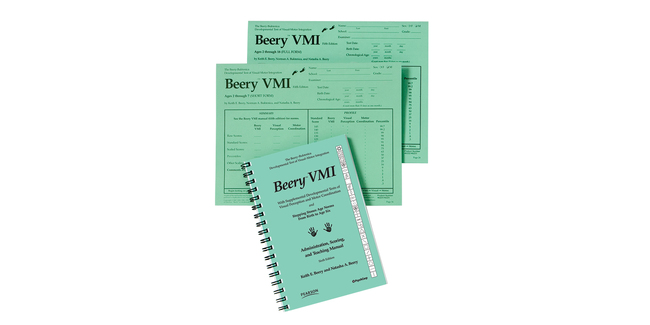Assess visual-motor skills in children and adults
Beery Buktenica Developmental Test of Visual Motor Integration 6th Edition
Beery VMI
Assess visual-motor skills in children and adultsChoose from our formats
Kits
Starter & complete kits, print & digital
1 option
Test forms & reports
Booklets, record forms, answer sheets, report usages & subscriptions
4 options
Support materials
Manuals, stimulus books, replacement items & other materials
2 options
Training
Onsite, virtual & on-demand trainings
2 options
All products
All tests and materials offered for Beery VMI
9 options